Should You Use Baby Oil For Tanning? All You Need To Know!
Learn the safe ways to get perfect sun-kissed bronzed skin in summer with baby oil.

Image: ShutterStock
Gone are the days when it was necessary to go out in the sun to get tanned. Several tanning solutions are available on the market to give you a healthy, glowing tan. However, if you do not prefer such expensive oils, you can easily use baby oil for tanning.
However, is it okay to use baby oil as a tanning lotion? Does it pose any safety issues? Read this article to know more about its role in skin tanning, how to use it, and safety precautions. Scroll down.
In This Article
What Is Baby Oil?

Baby oil is a skincare product intended for use on infants. It is an effective moisturizer that hydrates their skin and prevents any bacterial infections. Most baby oils contain mineral oils, vitamin E, and aloe. They also are very less likely to cause any skin irritation as they are specifically meant for use on the sensitive skin of babies.
 Did You Know?
Did You Know?But does baby oil really help you get tanned? Let us find out in the next section.
Key Takeaways
- Baby oil moisturizes infants’ skin and prevents any bacterial infections.
- If you use baby oil for tanning, you may get skin malignancies due to UV radiation.
- Using baby oil for tanning may increase the risk of skin cancer and other serious skin issues.
Does Baby Oil Help You Tan?
While research is limited, sunbathing after applying some baby oil to your skin might help you tan easily. The oil does not keep the sun’s rays from penetrating your skin.
Some also believe that combining baby oil and iodine may help with tanning. Iodine is thought to work similar to baby oil.
Ron, a blogger, reminisced about the good ol’ days when concocting a tanning elixir with iodine and baby oil was a summer ritual. He would pour the contents of a small bottle of red iodine into a larger baby oil bottle and shake the blend. He shares, “I remember carefully laying my beach towel on the sand, and then meticulously applying the oil to every inch of my chalky flesh (i).”
Using an iodine and baby oil tanning mixture is also thought to cause nausea and vomiting. However, using baby oil and iodine for tanning may increase the risk of skin cancer (1). Additionally, both ingredients may also lead to skin damage. Ron adds, “And how naive we were not to realize that the iodine was merely staining our skin and the baby oil was merely burning it; creating the perfect landscape for the possibility of future skin grafts.”
Using baby oil for tanning has its own set of benefits. We will explore them in the next section.
Benefits Of Using Baby Oil For Tanning
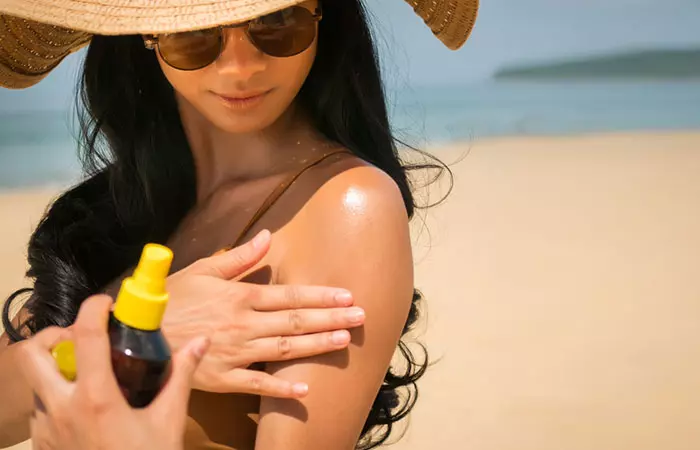
- Offers Quick Results: Baby oil usually contains no additional blends. Hence, it can work fast and offer you quick results.
- Gives A Deep Tan: Baby oil seeps into your skin and offers a deep, rich tan. You only may need a few sessions with baby oil.
- Causes No Allergies: Baby oil contains no harsh chemicals as it is made exclusively for babies. It is very unlikely to cause any allergies.
- It Is Non-Sticky: Most tanning lotions can be very sticky to touch. But baby oil easily seeps into your skin and leaves no sticky feeling.
- Is Safe For Clothes: Baby oil leaves no pesky stains on your clothes. Most tanning lotions tend to stain your clothes.
You may be quite excited to use baby oil for tanning. But you also must know how safe it is for use on the skin.
Is It Safe To Use Baby Oil For Tanning?

No, it is not. The use of baby oil for sun tanning became popular in the late ’70s when the idea of sun damage was not clear. Today, we know enough about skin damage due to sun exposure and UVA/UVB rays.
Using baby oil for tanning may cause skin malignancies due to UV radiation. Rather than deflect the sun rays, baby oil may instead allow them to pass unhindered to the deeper skin layers.
Hence, using baby oil to tan your skin is not safe. It poses several risks. We have discussed them briefly in the next section.
What Are The Risks Of Tanning With Baby Oil?
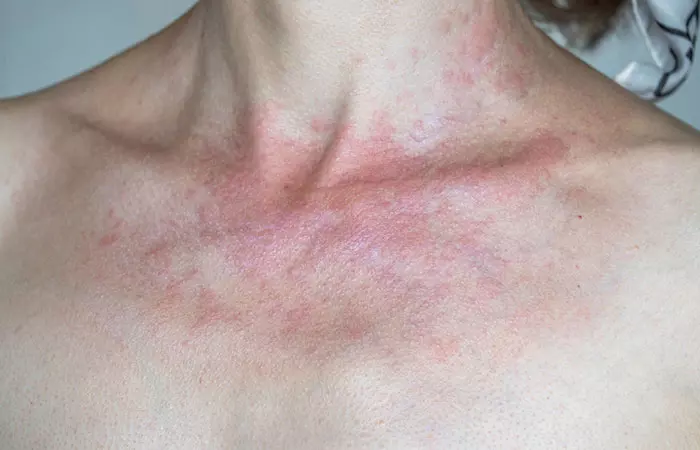
Trying to achieve a tan with baby oil can potentially harm your skin. Here’s how:
- Performing outdoor activities and exposing your skin to the sun after using baby oil increases the risk of sunburn. It also may lead to further peeling and scarring of skin. You may even end up with patchy spots on your skin.
- Sunburns may also increase the risk of skin cancer (2).
- Exposing your skin to the sun for longer periods may make it wrinkled and saggy and lead to premature aging. Photoaging may not become apparent on your skin immediately after tanning with baby oil. But you will start observing its effects with time.
- Excess exposure to UV radiation may damage the skin cells and lead to tumors and other abnormal growths on the skin (2).
It is, therefore, important to remember these undesirable effects of prolonged sun exposure when contemplating a tanned appearance, regardless of the method used to do so.
Using baby oil for tanning does pose certain risks. But what if you can still use it and reduce the risks?
How Do You Use Baby Oil To Tan Your Skin?
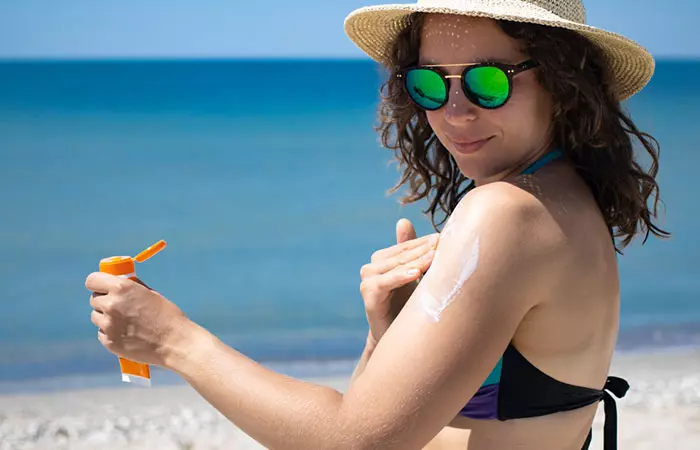
You may try adding SPF to baby oil before using it on your skin. This might offer some protection against sun damage. Adding sunscreen to baby oil can also be a good way to moisturize your skin. However, research is very limited in this regard. Consult your dermatologist before using baby oil for tanning.
 Quick Tip
Quick TipSome believe that coconut oil could be a better alternative to baby oil. But how true is that? Learn more in the next section.
Coconut Oil Vs. Baby Oil For Tanning
Using coconut oil for tanning is considered a better alternative to baby oil, due to its ability to offer protection from sun exposure. The oil is reported to have UV filters. It also spreads and gets absorbed easily (3). These properties may help protect against sunburns and other harmful effects of the UV rays, and possibly reduce tanning. Furthermore, coconut oil reduces inflammation, enhances the skin barrier, and may help treat skin conditions like eczema (4).
Infographic: Pros And Cons Of Using Baby Oil For Tanning
Baby oil ensures an even tan, without any streaks, as it is lightweight and spreads easily. While it is an affordable way to get a quick tan, using baby oil comes with a set of risks that can’t be neglected. In the infographic below, we have evaluated the pros and cons of using baby oil as a quick way to get a tan. Take a look.

Illustration: StyleCraze Design Team
The use of baby oil for tanning dates back to the late 1970s. Then, baby oil was used by women to get a beach tan because it was a cheaper alternative to tanning products. Unfortunately, there has been a lack of understanding of the potential harm that this approach can do to the skin. While it is simple and inexpensive to tan with baby oil, it also raises the risk of skin cancer and other significant skin problems. Therefore, combining SPF with baby oil for UV protection is a safer alternative. However, before using baby oil for tanning, we recommend consulting a doctor.
Frequently Asked Questions
How should I care for my skin after tanning with baby oil?
If you have already tanned with baby oil, gently cleanse your skin with a mild soap to remove the excess oil. Moisturize regularly and stay hydrated to help your skin recover and stay healthy. You may also apply a little aloe vera gel on the skin in case of any sunburns post tanning.
What to use instead of baby oil for tanning?
It is recommended that you use tanning oil instead of other natural types of oil for a healthy tanning experience.
Is olive oil or baby oil better for tanning?
Neither. While theoretically both oils may help speed up the tanning process, they lack SPF and hence may lead to skin damage. It is recommended to use a tanning lotion or mix the oils with SPF to protect your skin while tanning.
What’s better: tanning oil or lotion?
This depends on your needs. The oil can provide shine while the lotion absorbs quickly into your skin and has a creamier feel.
Can baby oil darken skin?
There is a lack of evidence suggesting if applying baby oil to your skin can affect its natural pigmentation.
Illustration: Baby Oil For Tanning – Is It Safe And Effective To Use?
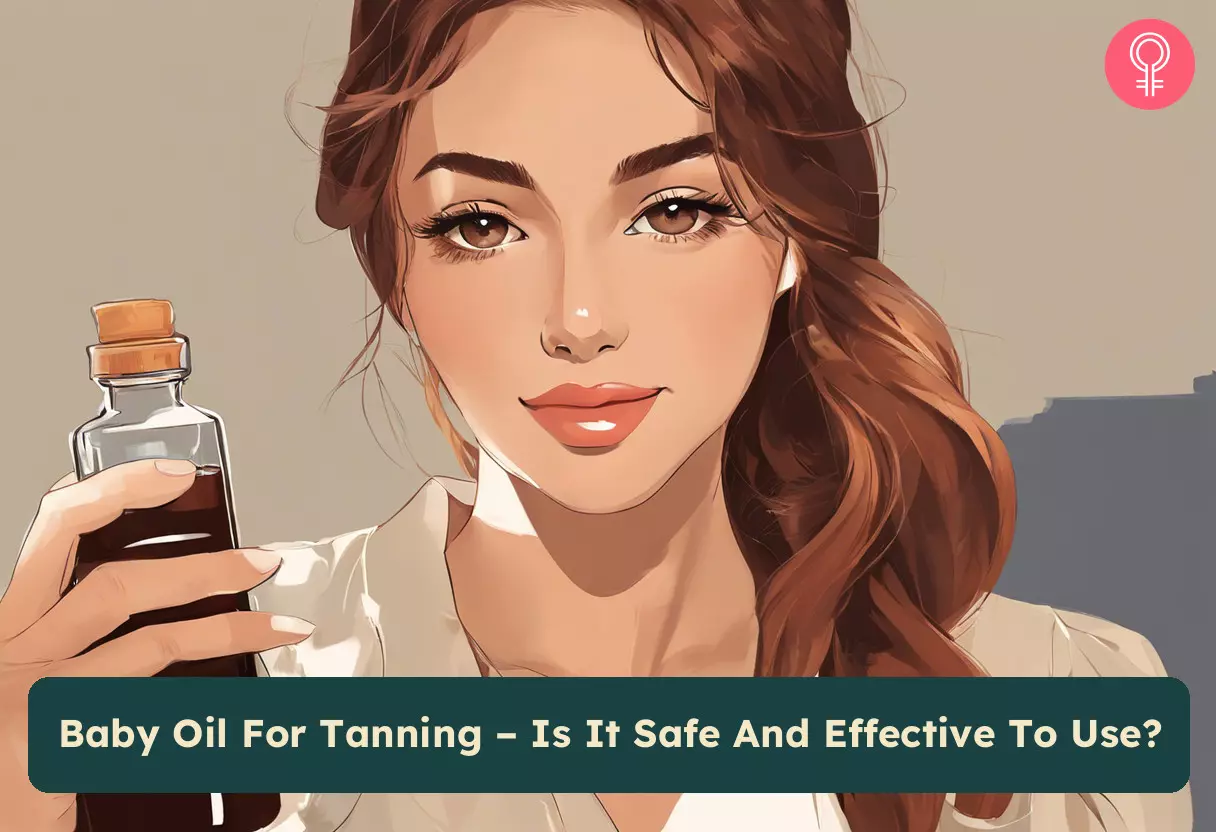
Image: Stable Diffusion/StyleCraze Design Team
Learn how to get a perfect tan with baby oil in this video! Mix it with your favorite sunscreen for a safe and healthy tanning experience. Watch now!
Personal Experience: Source
StyleCraze's articles are interwoven with authentic personal narratives that provide depth and resonance to our content. Below are the sources of the personal accounts referenced in this article.
i. Memoirs of Baby Oil and Iodinehttp://www.triloquist.net/2009/07/memoirs-of-baby-oil-and-iodine.html
References
Articles on StyleCraze are backed by verified information from peer-reviewed and academic research papers, reputed organizations, research institutions, and medical associations to ensure accuracy and relevance. Read our editorial policy to learn more.
- Youth and Tanning: A Dangerous Combination
https://www.ncbi.nlm.nih.gov/pmc/articles/PMC4093423/ - The benefits and risks of ultraviolet (UV) tanning and its alternatives: the role of prudent sun exposure
https://www.ncbi.nlm.nih.gov/pmc/articles/PMC2692214/ - In vitro sun protection factor determination of herbal oils used in cosmetics
https://www.ncbi.nlm.nih.gov/pmc/articles/PMC3140123/ - In vitro anti-inflammatory and skin protective properties of Virgin coconut oil
https://www.ncbi.nlm.nih.gov/pmc/articles/PMC6335493/
Read full bio of Dr. Preethi Nagaraj
Read full bio of Arshiya Syeda
Read full bio of Ramona Sinha
Read full bio of Medha Deb






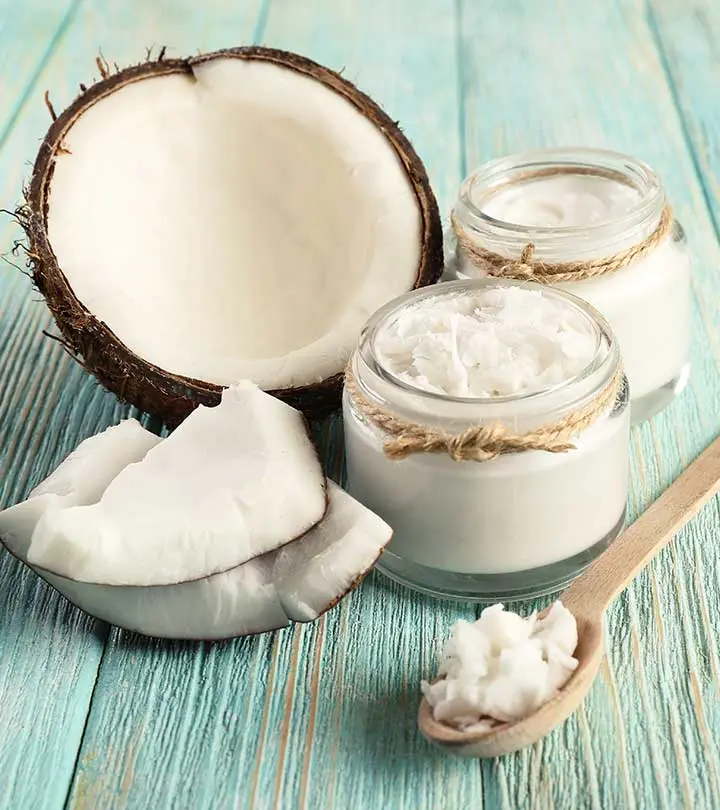



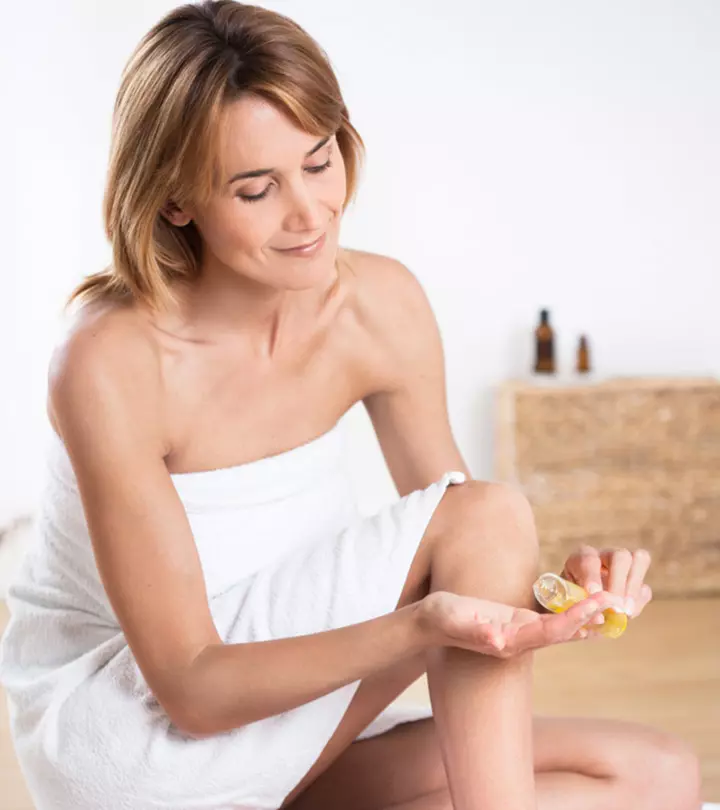
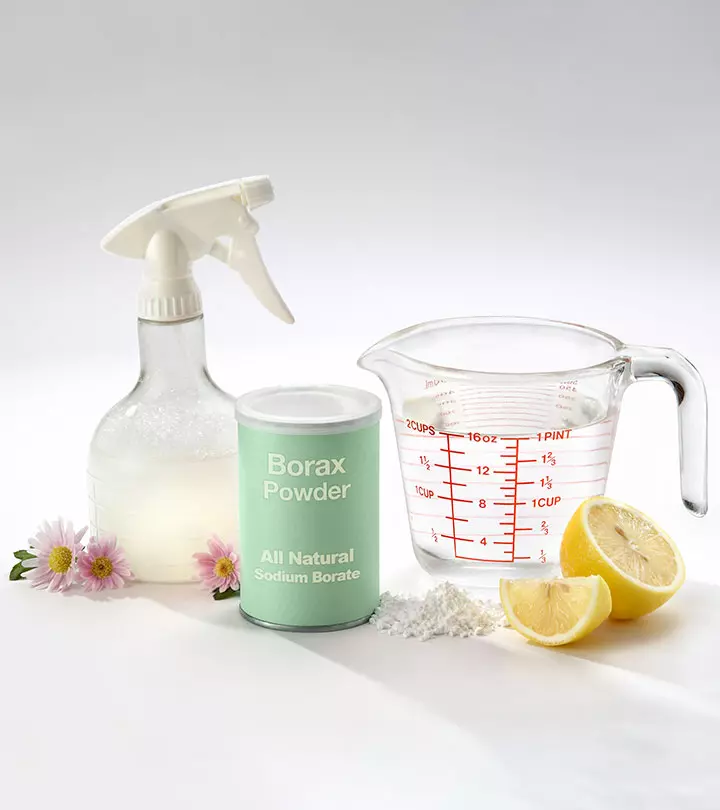
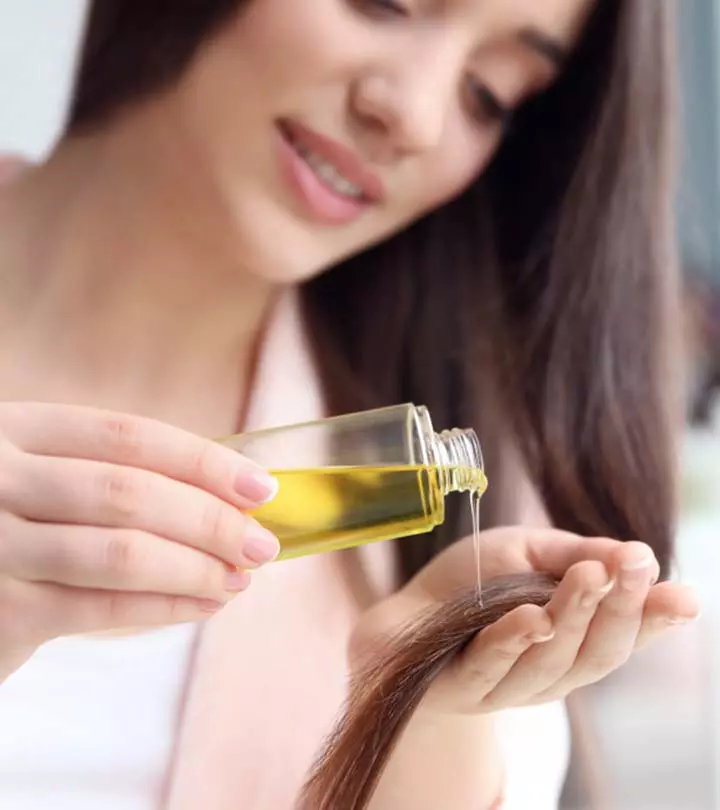
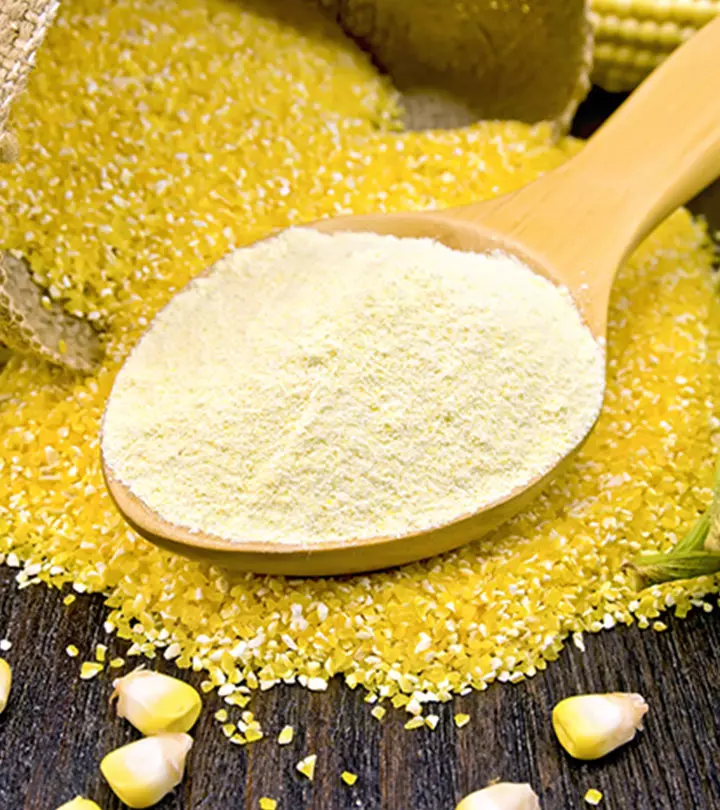
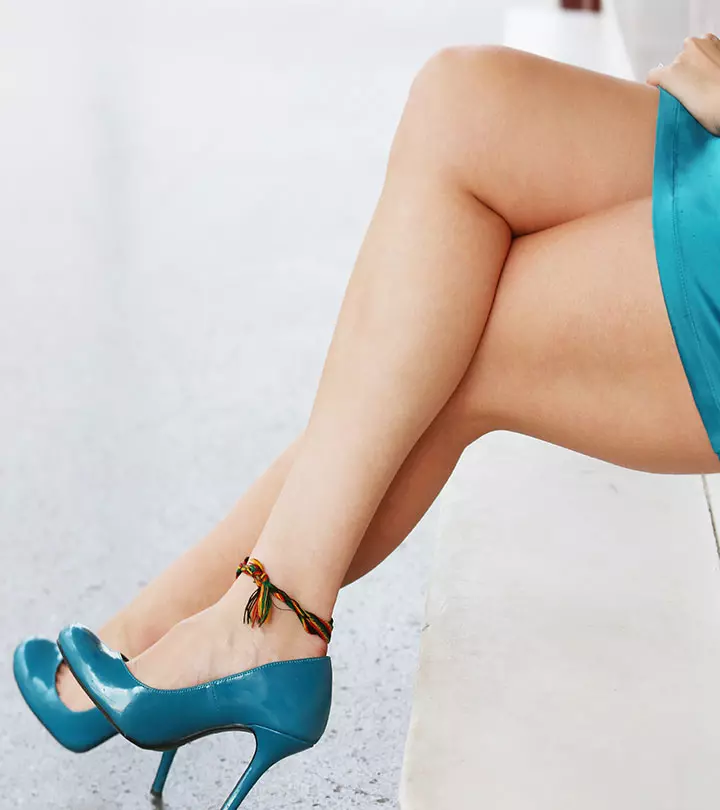
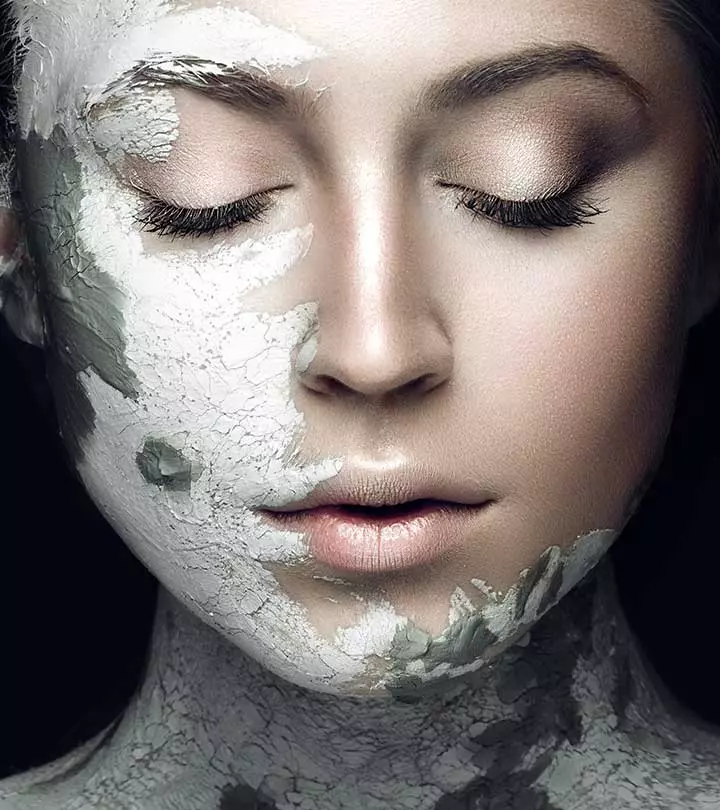
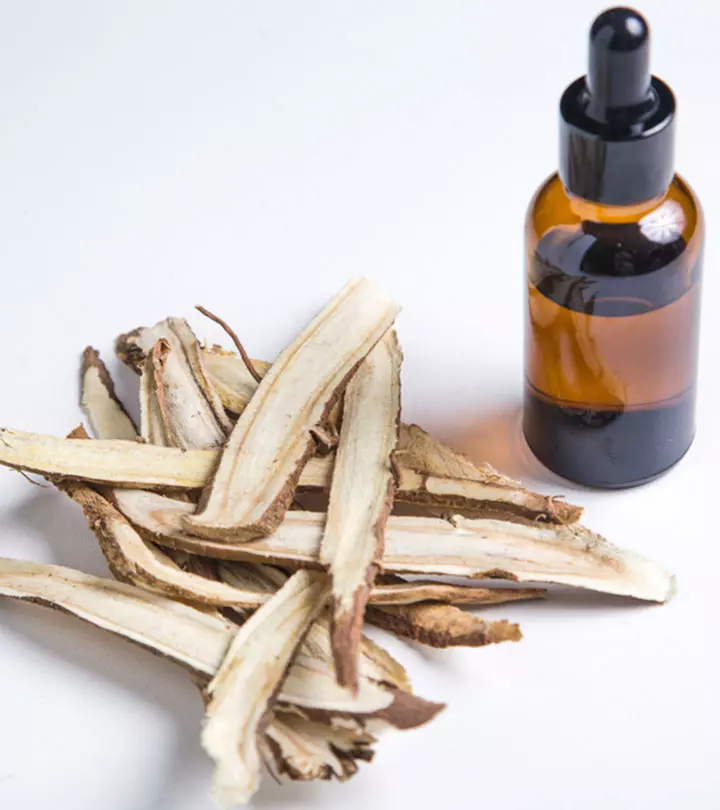
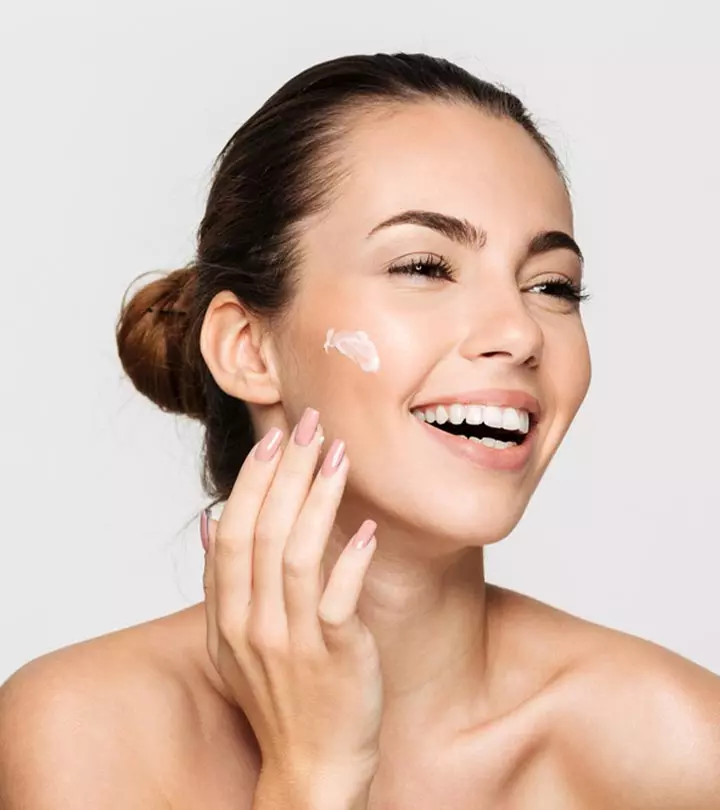
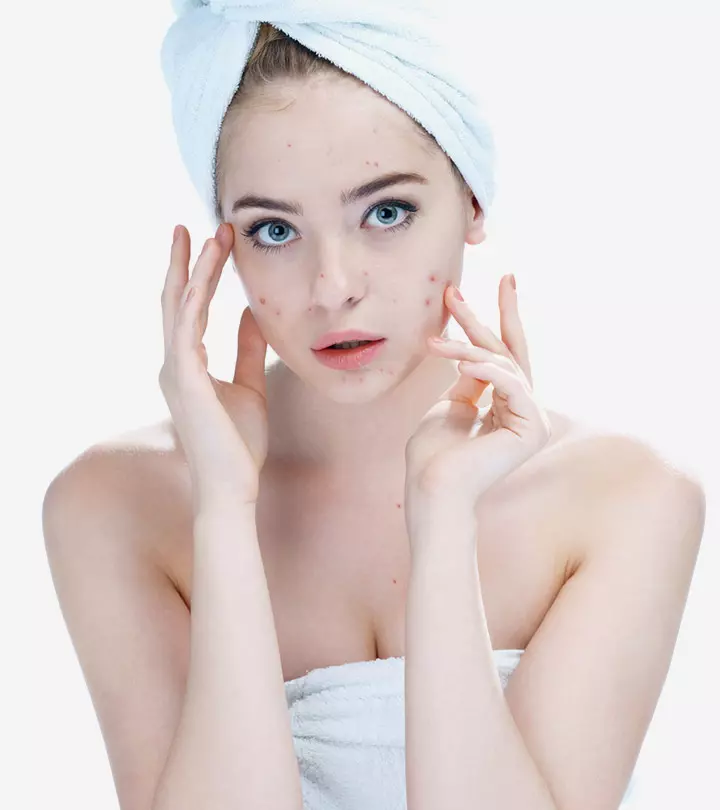
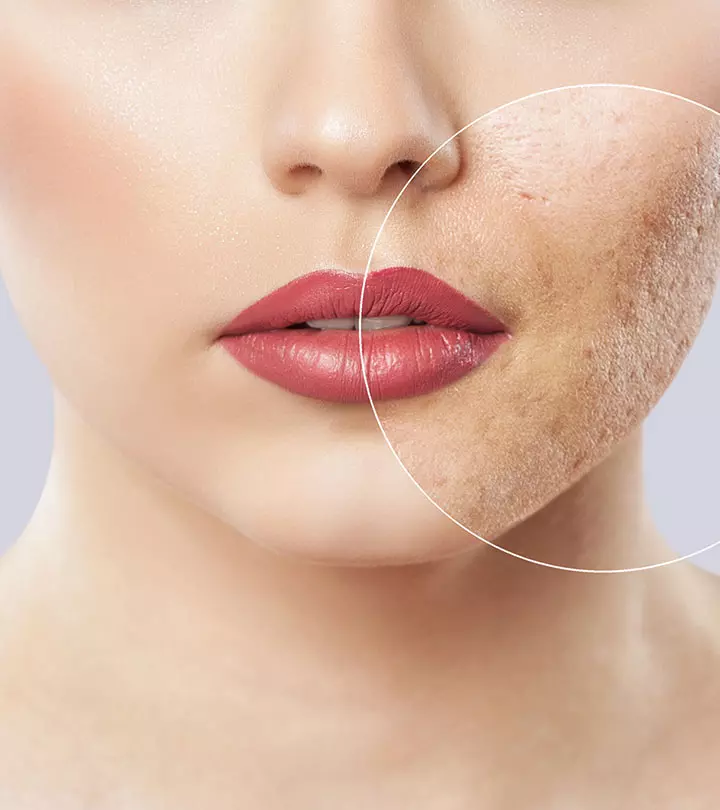
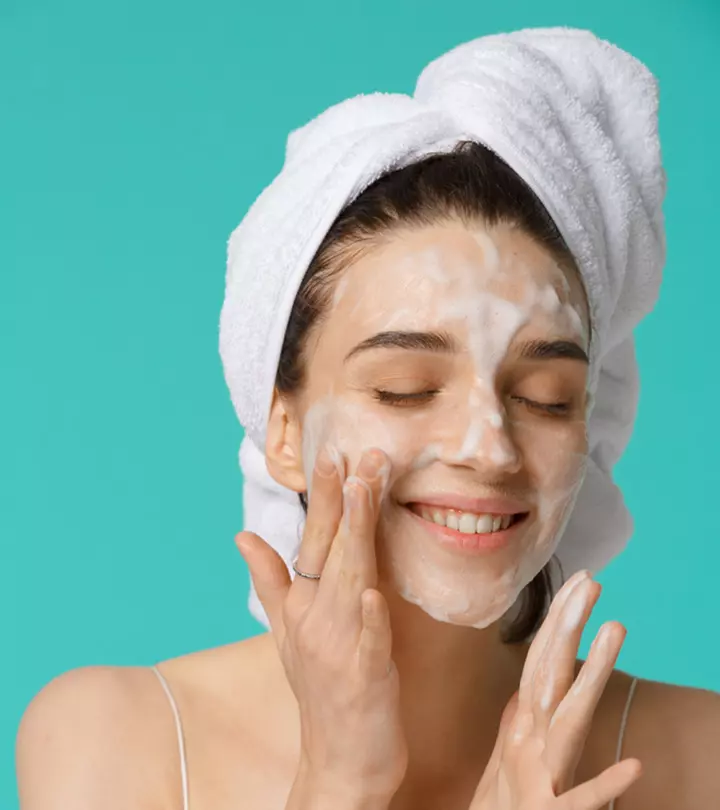
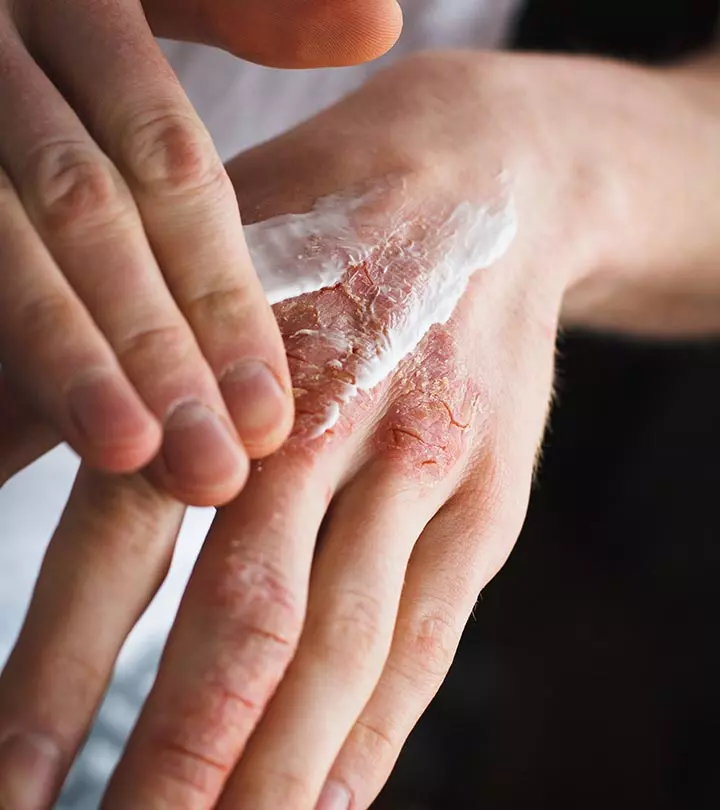
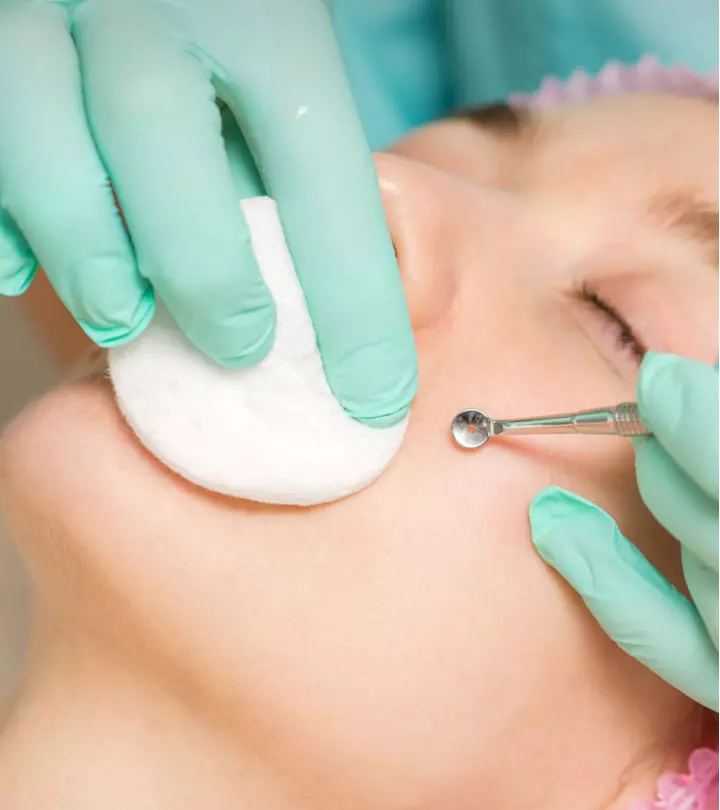
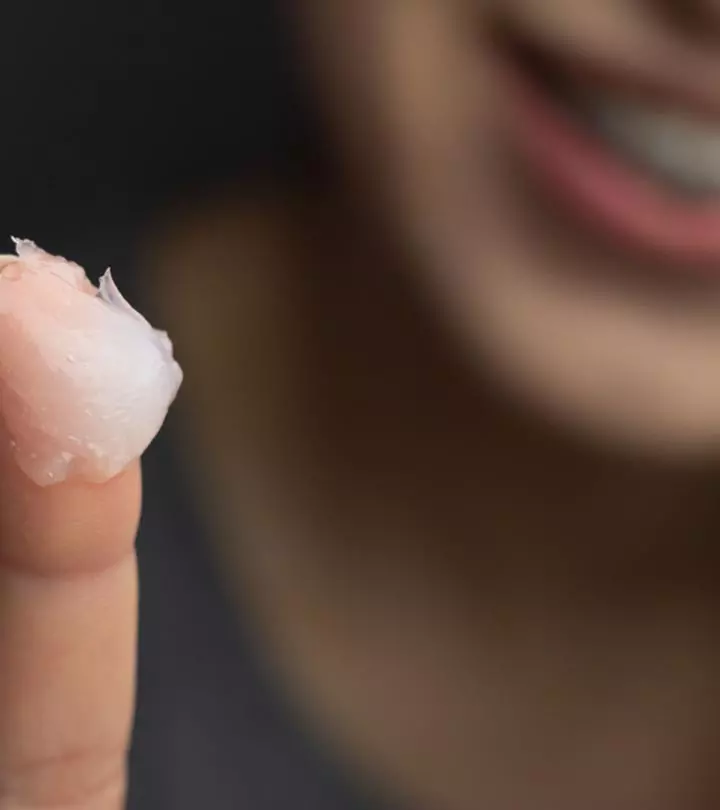
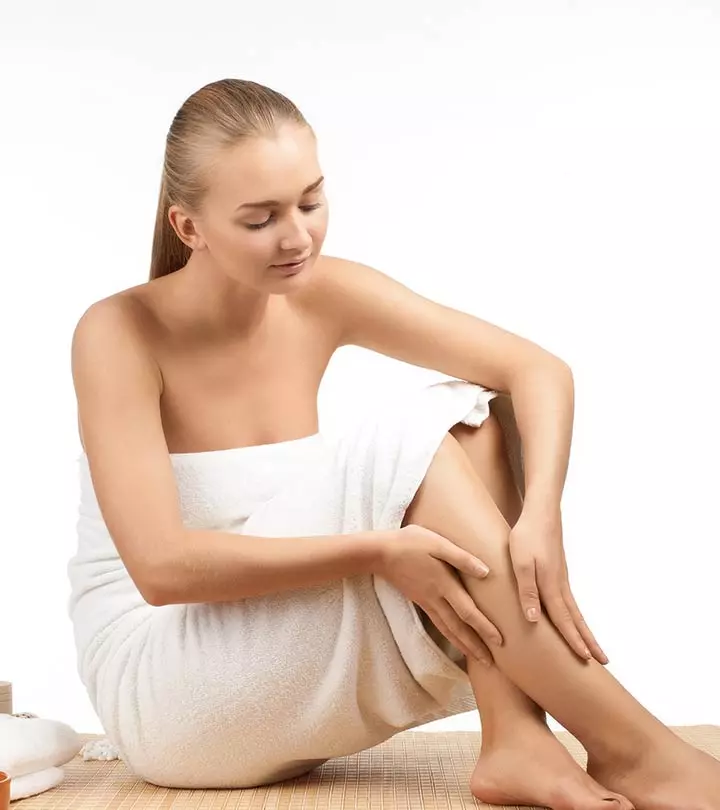
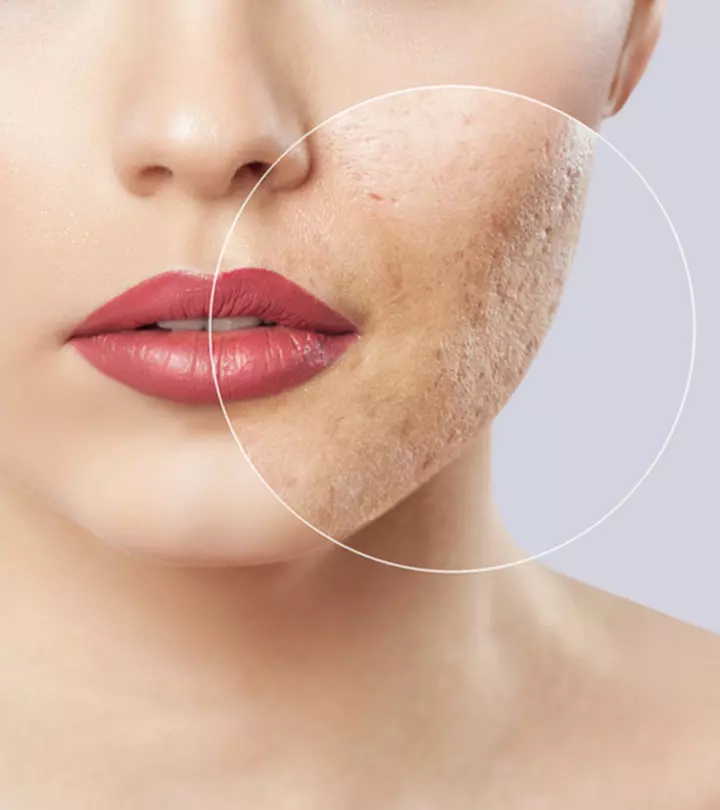
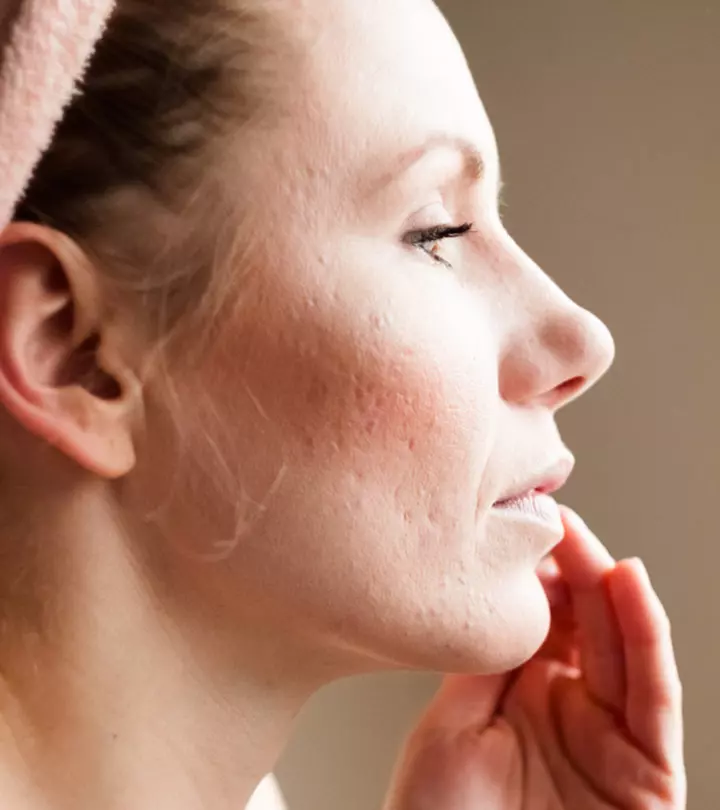
Community Experiences
Join the conversation and become a part of our empowering community! Share your stories, experiences, and insights to connect with other beauty, lifestyle, and health enthusiasts.